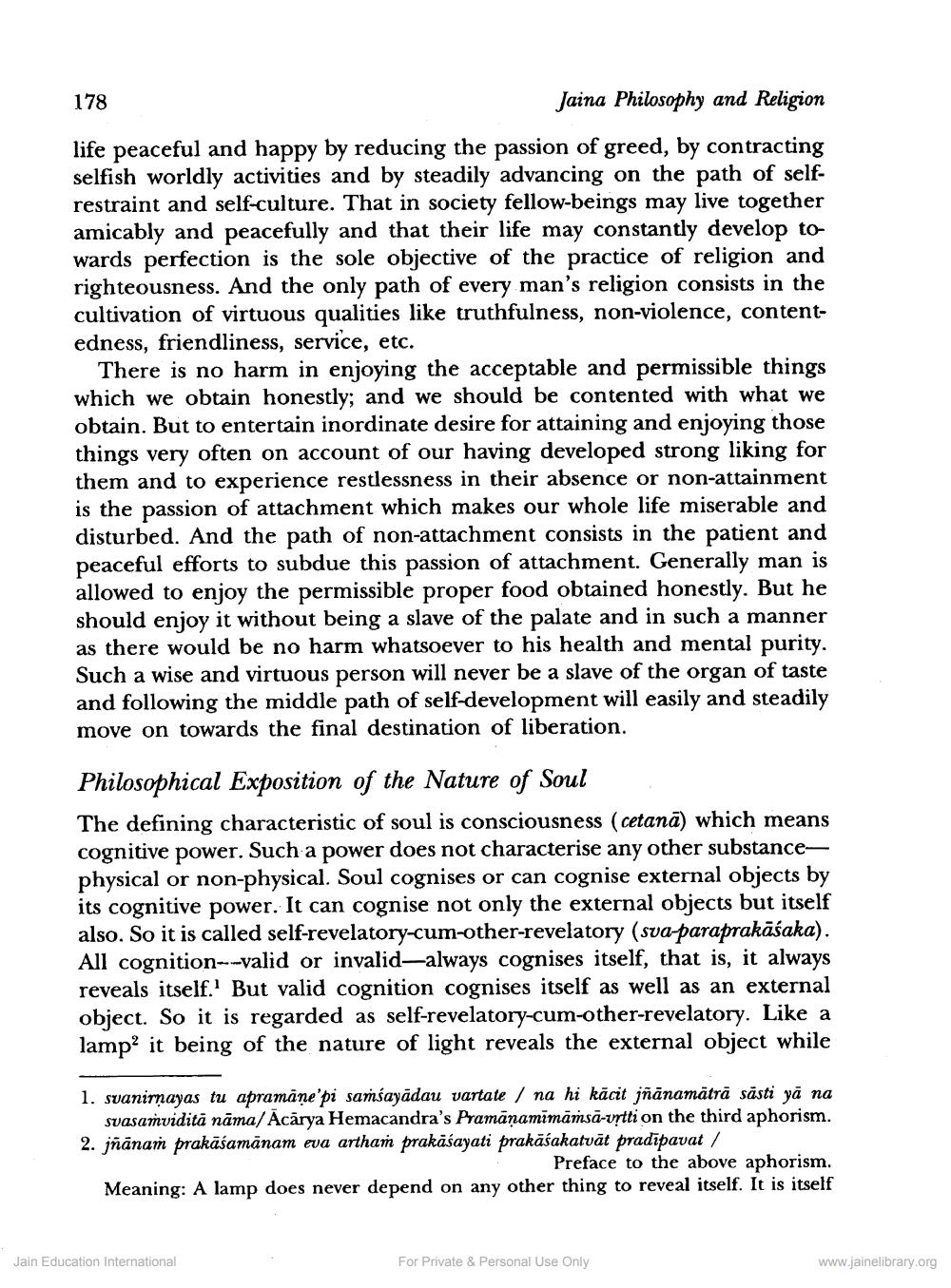________________
178
Jaina Philosophy and Religion
life peaceful and happy by reducing the passion of greed, by contracting selfish worldly activities and by steadily advancing on the path of self restraint and self-culture. That in society fellow-beings may live together amicably and peacefully and that their life may constantly develop towards perfection is the sole objective of the practice of religion and righteousness. And the only path of every man's religion consists in the cultivation of virtuous qualities like truthfulness, non-violence, contentedness, friendliness, service, etc.
There is no harm in enjoying the acceptable and permissible things which we obtain honestly; and we should be contented with what we obtain. But to entertain inordinate desire for attaining and enjoying those things very often on account of our having developed strong liking for them and to experience restlessness in their absence or non-attainment is the passion of attachment which makes our whole life miserable and disturbed. And the path of non-attachment consists in the patient and peaceful efforts to subdue this passion of attachment. Generally man is allowed to enjoy the permissible proper food obtained honestly. But he should enjoy it without being a slave of the palate and in such a manner as there would be no harm whatsoever to his health and mental purity. Such a wise and virtuous person will never be a slave of the organ of taste and following the middle path of self-development will easily and steadily move on towards the final destination of liberation.
Philosophical Exposition of the Nature of Soul The defining characteristic of soul is consciousness (cetana) which means cognitive power. Such a power does not characterise any other substancephysical or non-physical. Soul cognises or can cognise external objects by its cognitive power. It can cognise not only the external objects but itself also. So it is called self-revelatory-cum-other-revelatory (sva-paraprakāśaka). All cognition--valid or invalid-always cognises itself, that is, it always reveals itself. But valid cognition cognises itself as well as an external object. So it is regarded as self-revelatory-cum-other-revelatory. Like a lamp? it being of the nature of light reveals the external object while
1. svanirņayas tu apramane'pi samśayādau vartate / na hi kācit jñānamätrā sāsti ya na
svasamviditā nāma/ Acārya Hemacandra's Pramanamimāṁsā-vytti on the third aphorism. 2. jñānam prakāśamānam eva artham prakāśayati prakāśakatvāt pradīpavat /
Preface to the above aphorism. Meaning: A lamp does never depend on any other thing to reveal itself. It is itself
Jain Education International
For Private & Personal Use Only
www.jainelibrary.org




